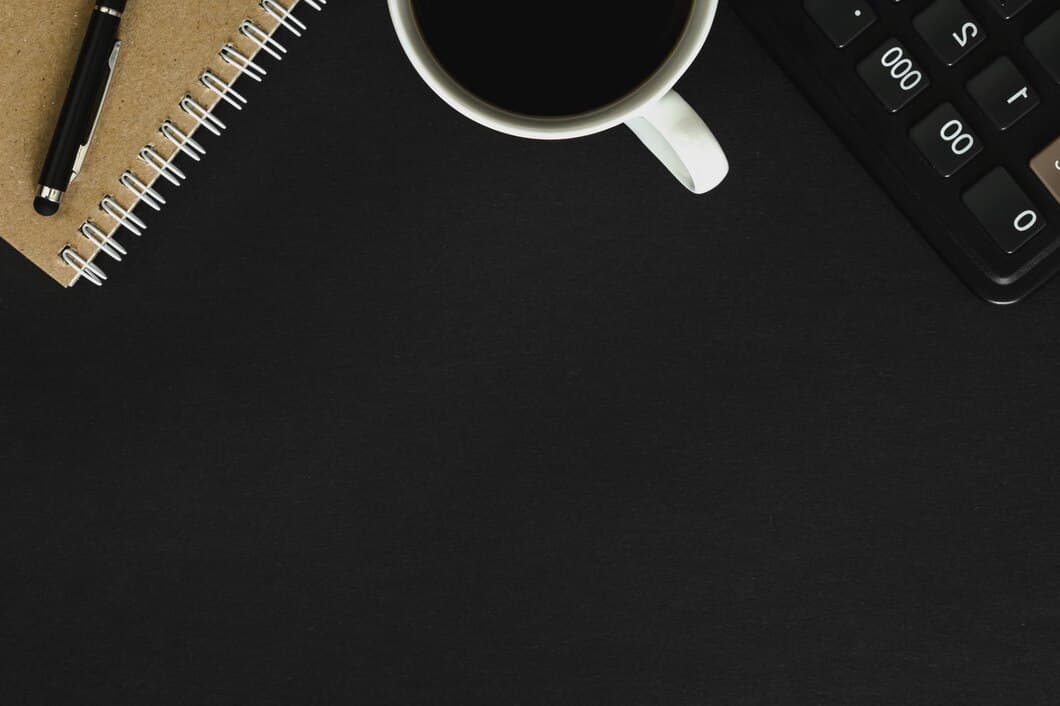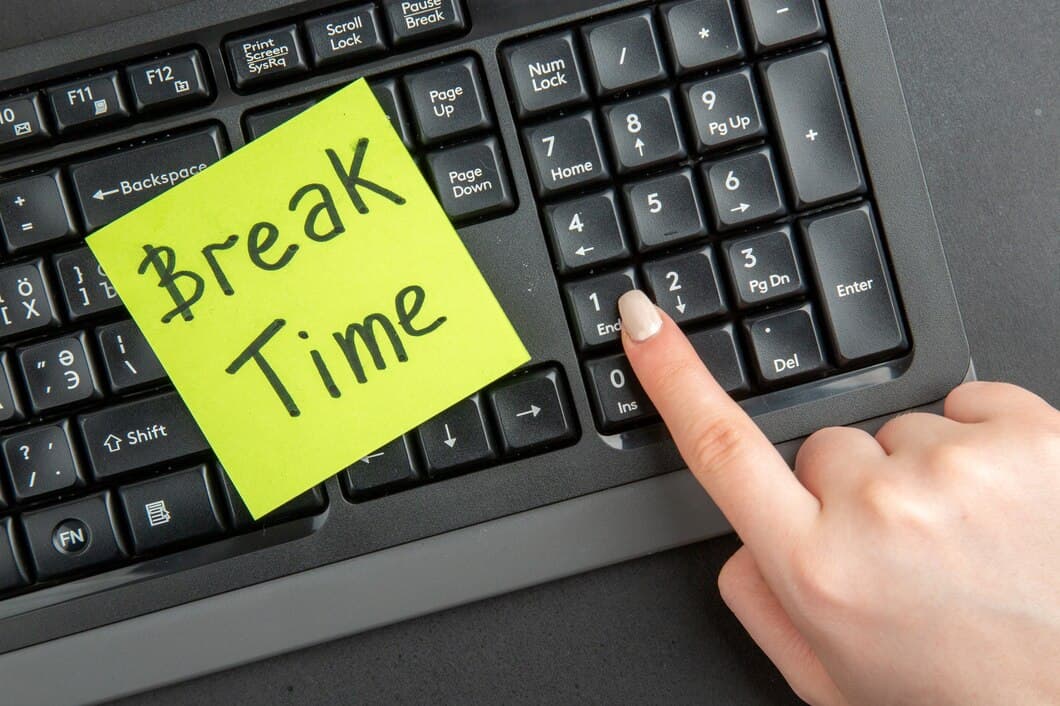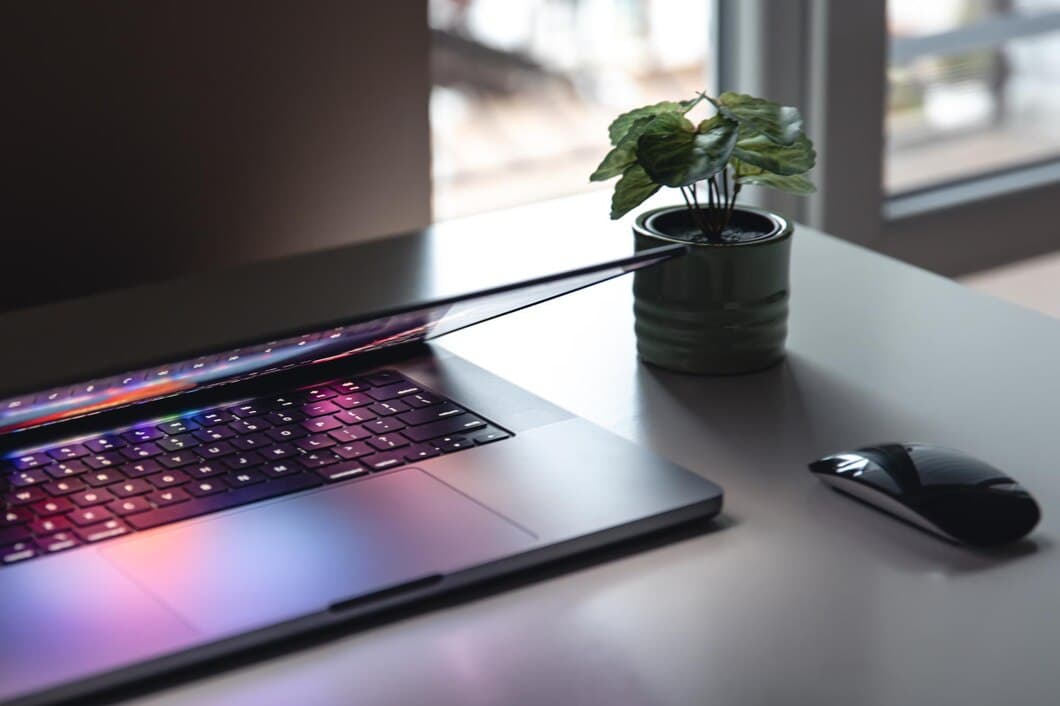How To Clean A Laptop Keyboard With Sticky Keys Without Liquid?

Sticky laptop keys can be an annoyance, but they don't have to be. With a few simple steps, you can clean your laptop keyboard without using any liquid. This will help to remove any dirt or debris that may be causing the keys to stick and will also help to keep your keyboard looking its best.
To clean your laptop keyboard without liquid, you will need a soft cloth, a cotton swab, and a can of compressed air. First, use the soft cloth to wipe down the keys and remove any loose dirt or debris. Then, use the cotton swab to gently clean the space around each key. Finally, use the compressed air to blow out any remaining dirt or debris. Your laptop keyboard should now be clean and free of sticky keys.
What causes sticky keys on a laptop keyboard?

How to clean a laptop keyboard with sticky keys using compressed air?
To keep your laptop keyboard clean and free of germs and dust, you should clean it on a regular basis, whether or not it has sticky keys. To do this, you can first use compressed air to blow out the dust and crumbs from the nooks and crannies of the keyboard. Once all the dust and crumbs are removed, you can then disinfect the keyboard by wiping it down with a damp cloth that has been soaked in a mixture of water and rubbing alcohol.
If your laptop keyboard has sticky keys, you can use compressed air to blow out any debris that may be causing the keys to stick. To do this, hold the can of compressed air upright and insert the nozzle into the space between the keys. Then, gently squeeze the trigger to blow out the debris. Repeat this process for all of the sticky keys on your keyboard.
How to clean a laptop keyboard with sticky keys using a vacuum cleaner?
If you have a laptop keyboard with sticky keys, you can clean it using a vacuum cleaner. First, turn off your laptop and unplug it from the power outlet. Then, use the vacuum cleaner to suck up any loose crumbs or debris that may be on the keyboard. Next, attach the brush attachment to the vacuum cleaner and gently brush away any remaining dirt or dust. Finally, use the vacuum cleaner to suck up any remaining debris.
To clean stubborn sticky keys, you may need to use a cotton swab dipped in rubbing alcohol. Gently rub the cotton swab over the sticky keys to remove any residue. Be careful not to use too much rubbing alcohol, as this could damage the keys.
Once you have cleaned the keyboard, turn on your laptop and plug it back into the power outlet. Your sticky keys should now be fixed.
How to clean a laptop keyboard with sticky keys using a soft brush?

Use a soft, dry brush to gently remove any loose debris or crumbs from the keyboard. Start by brushing in the direction of the keys, then brush perpendicular to the keys to dislodge any stuck particles.
If the keys are still sticky, try using a slightly damp brush. Be sure to wring out the brush thoroughly before using it on the keyboard, as any excess moisture could damage the electronics.
Once you've brushed away all the loose debris, use a soft, clean cloth to wipe down the keyboard. This will help to remove any remaining dirt or grime.
If your keyboard is particularly dirty, you may need to use a cleaning solution. However, be sure to choose a cleaning solution that is specifically designed for electronics, as harsh chemicals can damage the keyboard.
How to clean a laptop keyboard with sticky keys using a microfiber cloth?
If your laptop keyboard is not working properly because of sticky keys, you can use a microfiber cloth to clean it. This is a simple and effective way to remove dirt and debris that may be causing the keys to stick. To clean your keyboard with a microfiber cloth, start by unplugging it from the computer. Turn the keyboard upside down to shake out loose debris. Then, use the microfiber cloth to gently wipe down all of the keys. Be sure to get into the crevices around the keys and remove any visible dirt or debris.
If your keys are still sticky after wiping them down with a microfiber cloth, you can try using a slightly damp cloth. Be sure to wring out the cloth thoroughly before wiping down the keyboard, as you don't want to get any moisture inside the computer. After cleaning your keyboard, use a can of compressed air to blow out any remaining debris. Finally, plug the keyboard back into the computer and test it out. Your keys should now be working properly.
Here are some additional tips for cleaning a laptop keyboard with sticky keys using a microfiber cloth:
Use a soft, lint-free microfiber cloth. A rough cloth can damage the keys. Wipe down the keys gently. Don't scrub too hard, as this can also damage the keys. If your keys are very sticky, you can try using a slightly damp cloth. Be sure to wring out the cloth thoroughly before wiping down the keyboard. After cleaning your keyboard, use a can of compressed air to blow out any remaining debris.
How to clean a laptop keyboard with sticky keys using a cotton swab?
1. Dip the cotton swab in rubbing alcohol (70% or higher).
2. Gently press the swab onto the sticky key and move it back and forth.
3. Repeat steps 1 and 2 until the key is clean.
4. Let the keyboard dry for a few minutes before using it again.
How to clean a laptop keyboard with sticky keys using a disinfectant wipe?
The best way to clean a laptop keyboard with sticky keys is to use a disinfectant wipe. First, power off your laptop and unplug it from the power outlet. Then, use the disinfectant wipe to gently clean the keys, being careful not to get any liquid inside the laptop. Use a cotton swab or a soft brush to remove any remaining debris or dirt. Finally, allow the keyboard to air dry before plugging it back in and powering on your laptop.
If your keyboard is particularly dirty, you may need to use a stronger cleaning solution, such as isopropyl alcohol. However, be sure to test the solution on a small area of your keyboard first to make sure it does not damage the finish.
How to prevent sticky keys on a laptop keyboard?
Sticky laptop keys can be a nuisance, especially if you're typing a lot. There are several things you can do to prevent sticky keys on a laptop keyboard. First, make sure your hands are clean, but if your hands get dirty, avoid handling the laptop keyboard with contaminated hands, food residue or sweat on your hands can cause the laptop keys to become sticky. Second, clean the laptop keyboard regularly to remove dust and dirt buildup, cleaning a laptop keyboard is important, it helps prevent sticky keys and other problems that could arise with regular use. Third, avoid eating or drinking while using the laptop, food crumbs and liquid spills are the common causes of sticky keys on a laptop keyboard. Fourth, if your laptop is in an environment with high humidity, use a dehumidifier to reduce moisture in the air, moisture in the air can cause the laptop keys to become sticky.
In addition to the above, there are several other things you can do to prevent sticky keys on a laptop keyboard. First, use a keyboard cover to protect the keyboard from dust and dirt. Second, use a compressed air can to blow out dust and dirt from the keyboard. Third, use a cotton swab dipped in isopropyl alcohol to clean the keys. Finally, if all else fails, you can take the laptop to a professional to have the keyboard cleaned or replaced.
Frequently Asked Questions
What is the best way to clean sticky keys on a laptop keyboard?
If the laptop has removable keys, you can turn the laptop upside down and will gently shake it to remove crumbs or other small debris. If not, you can take a soft paint brush and gently sweep dust or crumbs from the keys.
What should I do if my laptop keyboard is still sticky after cleaning it?
If the keys are still sticky after cleaning, you may need to use a more forceful method. You can try using a cotton swab dipped in rubbing alcohol or using a compressed air can to blow out any remaining debris.
How often should I clean my laptop keyboard?
The frequency with which you need to clean your laptop keyboard will depend on how often you use it and how dirty it gets. If you use your laptop frequently, you should clean it at least once a month. If you don't use your laptop very often, you may only need to clean it once every few months.
What are some other tips for cleaning a laptop keyboard?
Here are some additional tips for cleaning a laptop keyboard:
- Unplug the laptop from the power outlet before cleaning it.
- Use a soft cloth or brush to clean the keys.
- Do not use harsh chemicals or cleaning agents.
- Allow the keyboard to dry completely before using it again.
Summary
If your keyboard is sensitive to touch, you can try using a soft brush such as a makeup brush. Lightly brush the keys, making sure to get into the creases and crevices. You can also use a cotton swab dipped in alcohol to clean the keys.
If the keys are still sticky, you can try using a piece of scotch tape. Place the tape over the key and press down firmly. The tape will pick up any dirt or debris that is stuck to the key. You can also use a can of compressed air to blow away any dirt or debris that is stuck in the keys.




